AudioCulture
The noisy library of New Zealand music
Te pātaka korihi o ngā puoro o Aotearoa
The Mutton Birds
When The Mutton Birds formed in Auckland in 1991, its members had already achieved varying degrees of recognition within the New Zealand music scene. Initially viewed as the group’s clear leader, singer-songwriter Don McGlashan was also the best-known member.
He found New Zealand rock notoriety a decade earlier in Blam Blam Blam, then, from 1985, earned attention alongside Harry Sinclair as half of theatrical-musical project The Front Lawn. Eager to pursue his songwriting, McGlashan decided to start a new group, destined to become one of New Zealand music’s best and most popular for the ensuing decade.
"I really wanted to be in quite a conservative band that had its own sound and acted as a vehicle for my songwriting." – Don McGlashan
In a recent AudioCulture interview McGlashan reflected, “I was nearly 30 when the band started. I didn’t want to be the new guy on the block. I wanted to settle down and have a career where I wrote a bunch of stuff that would stick around for a long time. I loved the multifarious nature of Front Lawn but I really wanted to be in quite a conservative band that had its own sound and acted as a vehicle for my songwriting.”
McGlashan noted, “The basic point of the Blams was to be spiky and indigestible. That was exciting and fun and it fulfilled its promise. I'd also done experimental things, like From Scratch. I wanted a new band with really deep roots, where the songs seem to grow out of the soil.”
“The stuff I really cared about was folk music, like the Irish songs of distance and longing, and the American, English and Australian songwriters who'd settled down and tried to unpick their lives and their country and the people around them, trying to make songs that could stick around, like Ray Davies, Neil Young, Paul Kelly, Nick Cave, The Band.”
The first recruit to flesh out Don’s songs and vision was guitarist David Long. He'd been a McGlashan fan, he told AudioCulture. “I saw the Blams when I was about 15. I was obsessed with them. I just thought Don was the best songwriter in the country and I still do! He writes songs that don't sound like anyone else.”
While playing in adventurous Wellington band The Six Volts, Long teamed with The Front Lawn. “We were the band on their album [Songs From the Front Lawn, 1989],” he says. “Don and I really hit it off, and I thought it was great to be playing his songs. I feel like I coloured Don's songs in with sound."
That creative chemistry would be a crucial component for the first five years of The Mutton Birds. Long recalls that “a while later, Don rang me and said ‘I'm thinking of starting a rock band. Want to move to Auckland?’ The Six Volts had been together about three years and we were all rather tired, so I was up for it.”
Early rehearsals and gigs (including their low-key public debut at an outdoor event in Windsor Reserve, Devonport) were as a trio, with Steve Garden on drums. “He wasn’t up for the touring thing, though, so we looked for a drummer for ages,” says Long. “Then I said to Don, ‘do you know Ross Burge? I used to see him in The Spines and he’s the best player I’ve ever seen.’”
After listening to Burge’s playing on some records, McGlashan was convinced. “Ross was living in New York City at the time. I rang him up and asked if he was planning to come back. He said ‘Yes but I'm only flying to Sydney. You'll have to fly me back from there.’ I had to borrow money to do that,” says Don. A smart investment, for Burge still sometimes plays with McGlashan, as on the 2013 NZ tour with Dave Dobbyn.
Don explains “We actually recorded quite a few songs for the first album with me on bass, before Alan (Gregg) joined. His joining meant I could switch to rhythm or acoustic guitar. I always thought of the band as a three-piece, but I couldn't play bass well enough to sustain that.”
Enter Alan Gregg, then playing in Auckland band Dribbling Darts Of Love, alongside Matthew Bannister and Burge. His inclusion in the band completed the seminal Mutton Birds line-up. “Alan is so thoughtful about music and what songs mean,” praises Don. “It was great to have him on board and that really made us what we are.”
The Mutton Birds never sought to fit into any local scene, explains McGlashan. "When we started we were all a little bit older than the other bands in Auckland. I don't even know what the scene was doing around then, certainly nothing I particularly wanted to be part of. We weren’t considered very cool but I think we surprised people in that the songs didn't sound like they were adhering to any kind of orthodoxy."
The Mutton Birds
With the line-up of McGlashan, Long, Burge and Gregg complete, the recording continued. The band soon evolved democratically, but McGlashan admits to being autocratic at first. “On the first album, I rather dictated and arranged everything and was bossing everybody around."
The recording process was low-budget, Long recalls. “Don had an AKAI cassette recorder and we recorded mostly on that, then went into another studio to mix. We’d put down guide parts, then I’d go in and do the guitars by myself.”
In a September 1992 interview with Rip It Up, McGlashan recalled the challenge of recording in their practice room. “We’d be struggling away with the rain beating on the roof and noxious fumes from the printer swirling around and on our hands and knees trying to work out where the humming was coming from ... I started to think what was wrong with me, why hadn’t I been able to get a deal for this record?"
Songs like 'Dominion Road' and 'White Valiant' had a vivid sense of place that quickly resonated with the New Zealand audience.
Whatever the resulting eponymous debut lacked in sonic polish was compensated for by the strength of Don McGlashan’s songwriting. Songs like 'Dominion Road' and 'White Valiant' had a vivid sense of place that quickly resonated with the New Zealand audience.
Deciding to cover The Fourmyula’s rock classic 'Nature' (in 2002 famously voted New Zealand's greatest song of the previous 75 years) was a very smart move, as it allowed conservative radio programmers to play something from a brand new band. The success of 'Nature' was boosted by a compelling video directed by Fane Flaws, filmed by ace cinematographer Stuart Dryburgh (An Angel At My Table) and with a dance sequence choreographed by Douglas Wright.
The Mutton Birds peaked at No.2 on the NZ album charts, beaten out only by Eric Clapton. A long run of over a year on the charts confirmed the depth of its material and that it was striking a real chord within the New Zealand consciousness. Unsurprisingly it won Album of the Year at the 1993 New Zealand Music Awards.
To Rip It Up, McGlashan admitted he craved record label support for a second album. “My analogy with this first record is that we’ve decided we want to fly somewhere, so we go out in the backyard and build a plane. Next time, I’d just like to buy a ticket!’
The commercial success of The Mutton Birds spurred record company interest. After plenty of shopping around by the band, it was EMI Australia that stepped forward with that ticket in 1993.
Salty
Prior to recording their second album in November 1993, The Mutton Birds had really begun to gel as a unit, adopting a more democratic working method en route.
McGlashan explained to AudioCulture. “Because of the age we were, we knew the value of what we were doing. This was a bunch of grown-ups saying ‘I’m going to commit to this, but I need to put my ideas in and have them listened to'. Everybody had that attitude so by the time we got to the second album it was all pretty democratic and that increased. It made things a bit slow moving but made for a very strong sound. We had to question everything. I think that gave the songs a real strength. The arrangements are pretty simple, we weren’t a band that was very flowery. I’d say ‘I want to add some keyboards to this' and every note had to be negotiated.”
Such a process paid off in the concise but always melodically and lyrically strong material. McGlashan’s ability as a poetic wordsmith was perfectly complemented by his warm vocal style and the intelligent musical contributions of his three comrades.
The result was a unified sound that could be viewed as greater than the sum of its parts. Don prefers the phrase "concentrate". If you put the four of us in a pot and boil us down you end up with a concentrate. Luckily it was one that ended up with some good records, not just a sticky goo."
Buoyed by the debut’s success, The Mutton Birds began work on Salty. Long told AudioCulture that “the first album was really exciting, the learning thing. By the second, we knew what sort of band we were more."
The band set up shop with engineer Mark Ingram at the disused TVNZ studio in Shortland Street, Auckland, bringing in gear from Revolver Studios. “It was like being in a condemned building with all this amazing gear. It was a really fun process,” says McGlashan.
In the April 1994 issue of Rip It Up, Long told Russell Brown that “we put heaps of stuff down all together. Last time, we had such small rooms we couldn’t put down a guitar as well as bass and drums. This time we had a room the size of a basketball court." The band put over 20 songs to tape over a two-month period.
The deal with EMI Australia meant a bigger recording budget. Some went to hiring American studio ace Tchad Blake (Tom Waits, Ron Sexsmith, Nusrat Fateh Ali Khan) to mix the album. McGlashan recalls “we sent Tchad ‘The Heater' (the first single and a joint group composition) for him to mix, then we figured out a way to get him to 301 Studios in Sydney to mix a bunch of tracks with us.”
“We hadn’t met Tchad until we flew to Sydney for the mixing,” says Long. “He was mixing ‘The Queen's English’ and I remember listening to the drum sound and thinking ‘you are a god!’” McGlashan remembers Blake as “a fascinating and cool guy”.
Blake’s sonic skills, McGlashan’s eloquent songwriting, and the spirited playing of the band resulted in an album justifiably considered a New Zealand classic. Considered by many the best Mutton Birds album, it’s one that stands the test of time.
Adding diversity to the sound was the Alan Gregg’s development as a songwriter. He contributed three songs to Salty, 'Wellington’, 'There’s A Limit', and 'Esther', his melodic pop sensibility contrasting nicely with McGlashan’s more cerebral approach.
Don laughingly recalls, “Alan was paralysed with shame about his songwriting early on. He came to me when we were making Salty and said ‘I’ve got some songs. I don’t think they’re any good. If you agree with me then this conversation never happened!' That was funny ‘cos they were so good. It was great having those songs to lighten the tone of the stuff. When I got to the UK, I was going through a fairly dark phase and the stuff I wanted to write was fairly downbeat. It was nice to have Alan’s songs like ‘Come Around’ to lift us out of that.”
'The Heater' reached No.1, with subsequent singles 'In My Room’, 'Ngaire’, and 'Anchor Me' all making the Top 20.
Salty went down a treat at home. Peaking at No.3 on the album charts, it sold platinum. 'The Heater' reached No.1, with subsequent singles 'In My Room’, 'Ngaire’, and 'Anchor Me' all making the Top 20, clear confirmation of the depth of quality material.
With Salty, The Mutton Birds began flexing their wings outside Australasia. They never snagged a record deal in the USA, but EMI Records in Canada picked up Salty for distribution and encouraged the band to spend significant time in Canada.
As with Split Enz and Crowded House before them, The Mutton Birds found Canada a friendlier nesting ground than the USA. The Mutton Birds became aware of Split Enz’s popularity in Canada via their sound guy, former Split Enz drummer Paul (Emlyn) Crowther. “It's a bummer when your sound guy is more recognisable than you are,” says Long, adding, “Paul is a very close friend.”
I saw The Mutton Birds play a couple of times in Toronto in late 1994. During an Eastern Canada tour supporting popular Canadian rockers The Watchmen, they played a short set at The Phoenix, then four days later headlined a show at showcase club Ultrasound. My review for Rip It Up (Dec 1994) noted that “in concert, frontman Don McGlashan is the focus of most attention, but the premier musicianship of his three comrades cannot be ignored. Some of the songs from Salty actually sounded better live.”
The Mutton Birds made fans of The Watchmen. Bassist Ken Tizzard says “We were told there was a NZ band who sounded like Crowded House, so as fans we were excited about that. Of course, they sounded nothing like that band, but they had that same songwriting integrity. They were just very natural, good musicians who had really developed their craft.” The bands clicked personally too, with Tizzard having fond memories of having them over to his house in Toronto.
During Long's tenure in the band, they only ever played two gigs in the USA. “One was a tiny club in New York City," he recalls. "We played a blinder gig but nobody who mattered came. We played at [Hollywood industry hangout] the Viper Room once. That really felt like it wasn’t us.”
Looking back on Canada, Long notes “We weren't there enough. You need real money behind you, which we didn't have. The label was always waiting to see what happened first, and we’d have to cadge the airfare to places.” McGlashan now says “if I had my time over again I’d have insisted we come to America or Canada, just because the British music scene is so fashion-driven.”
Upon moving to London in 1995, things were looking promising. They had signed to Virgin in the UK, and the label put out a compilation album, Nature, featuring material from the first two albums.
Other European territories signed up, Long recalls. “We got to go to all these cool places. We often supported other artists, like Chris Isaak. We did six weeks supporting Simple Minds. They were on the decline but could still draw 5,000 people.”
Intensive touring would gradually take its toll on the band’s internal relationships, he says. “Everyone in the band just wanted to be away from each other, but I feel we were still playing really well. Onstage everything was gelling.”
Prior to working on their third album, The Mutton Birds went into South London studio Blackwing to record a self-produced song for the Danny Elfman-scored soundtrack of upcoming Peter Jackson movie The Frighteners. They were brave enough to tackle Blue Oyster Cult classic '(Don’t Fear) The Reaper’, and their fresh take helped win them some fans internationally when the 1996 flick became a decent-sized hit.
Envy Of Angels
The third album sported the highest recording budget of any Mutton Birds record. Virgin in the UK clearly had high hopes for the band, introducing them to some big name producers. “That never happens in New Zealand,” Don says. “We auditioned a bunch. That was a really cool process, though some just said how great they were. They disappeared into the bathroom and came out talking really fast! Hugh Jones basically sat down and said ‘what films do you like?' He connected with us as people and aesthetically. He seemed like an intelligent thoughtful man to spend a few weeks with. Hugh had an incredible pedigree and he liked our stuff.” Decision made.
To record the album, Jones (Simple Minds, The Saints, Echo and The Bunnymen) and The Mutton Birds set up shop in 1996 in famed rural Wales studio Rockfield, used by everyone from Oasis to Dave Edmunds to Queen. “They made 'Bohemian Rhapsody' there, using that same piano,” says McGlashan. “It wasn’t flashy, but it had good gear,” says Long. “They had the 2-inch tape machines. People had started talking about digital stuff but Hugh was old school.”
"I was a bit slow on the uptake of how Hugh wanted to work," says McGlashan. "We were used to the whole process being fluid and collective up to the mix. With Hugh, the pre-production in a rehearsal room is when you negotiate everything and have everything totally fixed in place. Then basically you come in, play your parts, then go to the pub. I think it made us focus on our playing. We played well on that record. It was a beautiful place to be. We learnt a lot and I think we made a good record. It wasn’t a happy time for me or David back then. I think he’d already decided he was going to leave the band.”
The impending UK release of the album caught the attention of music biz bible Billboard. In the March 22, 1997 edition, a story by Paul Sexton was entitled “Virgin helps Kiwi act Mutton Birds fly in UK.” It noted that “The Kiwi band, stars in their home country for more than five years, have spent most of the past few months living, recording and playing in the UK in the build up to the European release of Envy Of Angels."
The group's NZ following had remained, and, on its November 1996 release there, the album reached No.4, although the singles 'She's Been Talking' (No.19) and 'Come Around' (No.35) were moderate hits only.
Prior to the UK/Europe release, the band gigged extensively around London, toured Ireland for a month, then supported Billy Bragg on a chilly six-week tour around the UK. The album came out in there in June, but the love affair with Virgin proved short-lived. Early UK airplay for the first single, the catchy Gregg tune 'Come Around,' was encouraging, but album sales proved disappointing (peak UK chart position No.64). The label then kicked the Mutton Birds out of their nest, dropping them just a few months later.
As Alan Gregg succinctly told Real Groove (April 1998), “We’ve been dropped. Old story. Good reviews, low sales. We don’t care. We say it’s very liberating.” In that story, McGlashan noted “Virgin gave us a platform in the UK other bands would kill for. We’re underdogs now and that could make it easier for us. Our live audience is pumping over in London, and we could live off royalties and T-shirts for a while. We’re back to a more cottage industry level now.”
One regret they had from the Virgin era was over videos. "We had huge amounts spent on our videos – and they’re just rubbish,” Gregg told Real Groove. Don concurred, adding “the videos probably cost what a reasonably nice house in Auckland would. Considering they’re nothing to be proud of, and they didn’t get played, it does rankle.”
Some major Brit music mags and daily papers raved about the album. It made the Top 10 best of 1997 list in the Sunday Times, while Mojo named it fifth best album of the year in their readers poll. In a January 1998 interview with the Sunday News’ Mike Alexander, McGlashan said “we were really chuffed by the readers’ poll. The main thing that keeps you going is the one to one thing with your fans.
The Mutton Birds faced some challenging times during this period, ones that would have derailed a band with less fortitude.
The Mutton Birds faced some challenging times during this period, ones that would have derailed a band with less fortitude. David Long had left the band in late 1996, choosing to return to New Zealand. He told AudioCulture problems with management decisions were a key factor, along with the breakup of his marriage. “I don't know what you've heard in the way of rumours, but we [the band] fell out. Part of my leaving was to do with our manager, Daniel Keighley. There's a long back story there."
Long’s misgivings about management were clearly justified. Following Long's departure, as Don told AudioCulture, “Our manager went back to New Zealand leaving us in really bad shape.”
Keighley went onto further notoriety in New Zealand, following his ill-fated Sweetwaters Festival in January 1999. A NZ Listener story (Feb 20, 1999) noted, “Hurricane Daniel cut a trail of devastation through the music industry.” In that piece, Long said “I wasn’t surprised at all when Sweetwaters turned to shit."
Long rejoined his comrades for a final New Zealand tour in early 1997. He was then replaced by London-based expat guitarist Chris Sheehan, formerly of Dance Exponents then Anglo-New Zealand band The Starlings.
Salvation for the band came in the form of Steve Hedges, McGlashan recalls. “He had been co-managing us, and he rather came out of retirement to rescue us and was a real angel. He got us going, financed our next record, and toured us up and down the country, helping us keep building an audience.”
Such support was crucial, for a band left label-less in London. Helping lift their spirits was another Canadian foray. That country’s top rock band, The Tragically Hip, had shared UK and European gigs with the group, and then invited them to join their star-studded travelling summer festival, Another Roadside Attraction. Check the impressive cast: Wilco, Los Lobos, Sheryl Crow, The Mutton Birds and Ron Sexsmith. "It was wonderful to do that tour across Canada with those fantastic artists,” says Don. "I kept in contact with the Wilco guys and worked with them again later on the 7 Worlds Collide project." He regrets they lacked the resources to return to Canada on their own and to build on this momentum.
Despite their struggles, the band put on a brave face for the folks back home. In the The Sunday News (Jan 18, 1998), Mike Alexander declared that “Three years after leaving these shores, The Mutton Birds are flying high in their adopted homeland of England.”
More personnel changes were a-wing. The next casualty from the original line-up was Alan Gregg, who left in mid-1998, replaced by Tony Fisher, the first Brit Bird. Gregg has remained in London, recording under the name Marshmallow, writing music for TV, and working as a producer and musician. His production credits include an album by The Stereo Bus.
This new configuration then began recording the fourth official Mutton Birds album, Rain, Steam & Speed.
Rain, Steam & Speed
Being independent meant a much-restricted budget for their 1999 album, but McGlashan is justifiably proud of the results. “We made it for a lot less in a much smaller studio than Envy Of Angels. I think there are some good songs on that record and it was great to make a record with Chris Sheehan. We were never able to bring him back to NZ for touring but we played a lot around Europe and the UK with him.”
The recording locale was, once more, Blackwing. As with the first album, this one was self-produced and solely comprised McGlashan compositions. It had a more experimental approach than Envy of Angels. In an interview with The Evening Post’s Lindsay Davis (May 20,1999), McGlashan noted “This album has more of a sense of England about it, the atmosphere and colours.” Ironically, he made those comments shortly after making the move back to New Zealand with his young family (kids aged seven and four).
Rain, Steam & Speed was released in February 1999 on manager Steve Hedges' own Shhhh! label to positive reviews. Despite further touring in support and the use of first single 'Pulled Along By Love' in Channel 4 ads in the UK, it was far from a commercial hit. Still, McGlashan notes, “It actually sold more than Envy Of Angels.” In New Zealand it reached No.10 on the charts.
The Mutton Birds remained in London for two years after being dropped by Virgin. Survival as a full-time band there without a label demonstrates they’d earned a sizeable audience through sheer hard work and the consistent quality of their output.
“Nothing can take away from the fact that we lived in England and were a fulltime band for four years.”
– Don McGlashan.
“Nothing can take away from the fact that we lived in England and were a fulltime band for four years,” says Don. “The audience kept building through those years to the point where we could get 1,500 to 2,000 people at Shepherd’s Bush. We weren't just playing to expats. There was a decent sized audience in Scotland and the north of England too. When I go back and play solo there, I meet some of those same dedicated fans.”
During their post-Virgin period, The Mutton Birds released a couple of other low-profile albums. 1997’s Angle of Entry was an acoustic live album, while 1999’s Too Hard Basket: B-sides and Bastards contained various rarities. When McGlashan returned to New Zealand in early 1999, their career started winding down. "We had a couple of tours of Australia and NZ, but in those instances we didn't have the full band. When we went back to England in 2000, we picked up a different guitarist (Andrew “Clanger” Claridge, ex-Garageland), and on the NZ tour we had Matthew Bannister (Sneaky Feelings, Dribbling Darts of Love) with us on guitar.”
The Mutton Birds' final UK tour, in late 2000, was capped off by a sold-out December show at the Shepherds Bush Empire.
In 2002, the band played a couple of final NZ gigs, as McGlashan recalls. “One was in Auckland for the arrival of the Volvo Cup on January 5. We played on a barge in the middle of Viaduct basin (other acts included Dave Dobbyn and Stellar*, and the free concert drew 100,000 people). We did another one for the opening of The Lord of the Rings film, and that was with the original line-up. Then it was 10 years of not doing anything."
Flock
As seems inevitable for a band calling it quits, The Mutton Birds released a Best Of compilation as their swansong. Out in November 2002, Flock, The Best Of The Mutton Birds featured selections from all four studio albums, along with a new recording of the Sneaky Feelings track 'Not To Take Sides’.
The Brit music press’ love affair with the group remained intact. Mojo’s David Hepworth wrote "In the first five songs on this record, there's more melody and harmonic reverberation than on the last album by more or less anyone you'd care to name.”
Reunion
As seems inevitable these days, The Mutton Birds did reunite, in 2012. This one seemed for the right reasons, not as a cash grab for the retirement plan. The idea was raised by Brent Eccles and Campbell Smith, promoters of the popular winery tours for top NZ artists. "They enticed us back onstage," says McGlashan. "It was a really good tour. Well-run and we really had fun practising."
David Long was pleasantly surprised by the instantly renewed chemistry. "After the first song at rehearsal we all stood there, just buzzing. This was like a hand in the glove fit. Don and I both felt we were actually playing better as a band, being older maybe. Coming back we all remembered the reasons we did it in the first place.”
Long loved the autograph signings after each show … "People would say 'you meant so much to me'. You realise you did have an impact.”
The hard graft they put in during the 1990s paid off with an impressive turnout for their October 2012 reunion gig in London, back at Shepherd’s Bush Empire. “We got 1,200 people there, and the promoter reckoned half were English,” David told AudioCulture.
Unfortunately, the gig was not the triumph McGlashan hoped for. “We played well, but it was sad that the sound wasn't good for that show. We made the mistake of not taking our own sound crew over. I felt really badly for the audience. I'm still a bit sad about that. Still, in New Zealand we made a really good live album and we took that over to England.”
The Mutton Birds remain one of New Zealand music's most formidable exports.
That album, Free Range – the Mutton Birds Live 2012, was recorded in the intimate setting of Auckland's King's Arms. The song selection does favour the early recorded in NZ material over later songs, but it was a natural move to concentrate on tunes recorded by the original line-up.
Reflecting on the band's career, David Long now notes "I think it's odd we did as well as we did really. We were a slightly heady band, never the hip band. That meant it didn't feel dated when we went out again."
The Mutton Birds remain one of New Zealand music's most formidable exports. As with the best NZ films, they demonstrated that work deeply rooted in your own culture and landscape can resonate beyond.
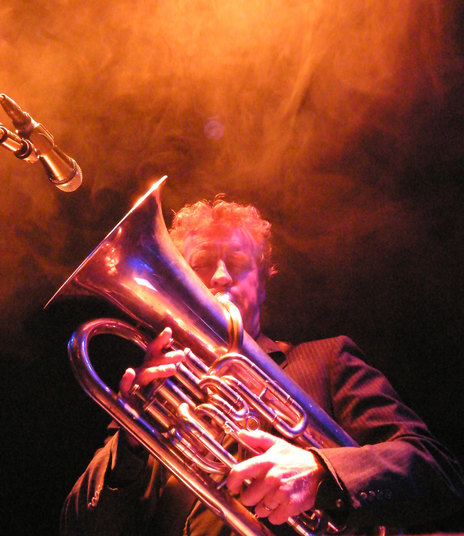
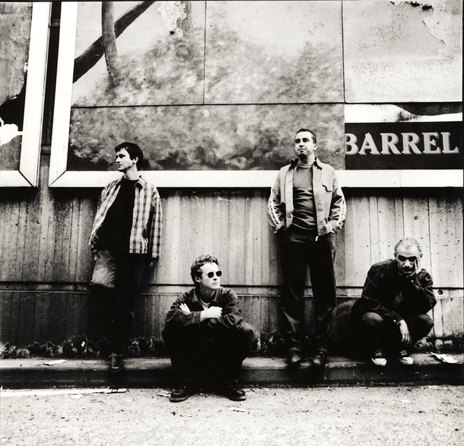
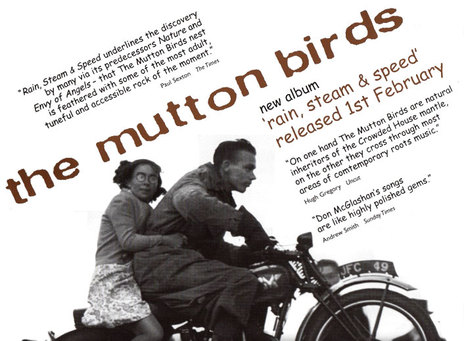
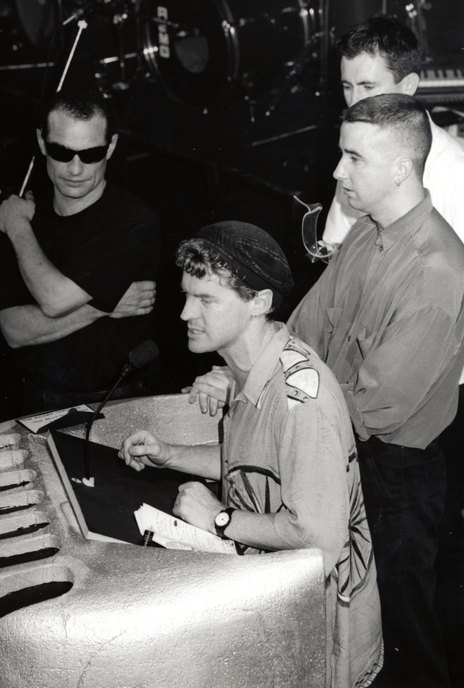
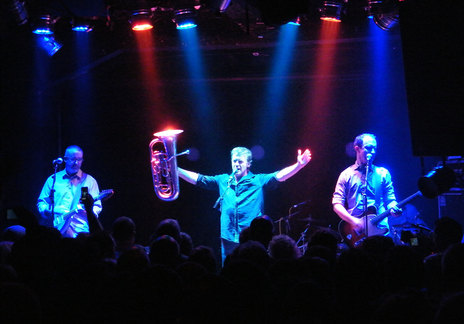
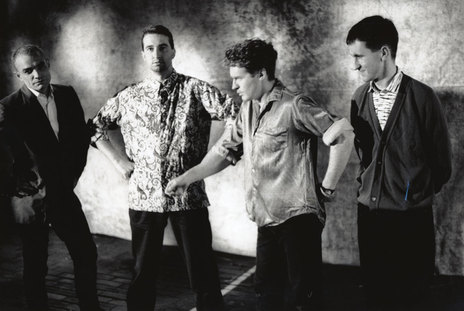
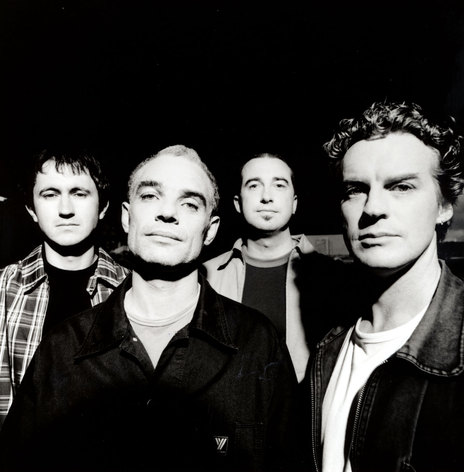
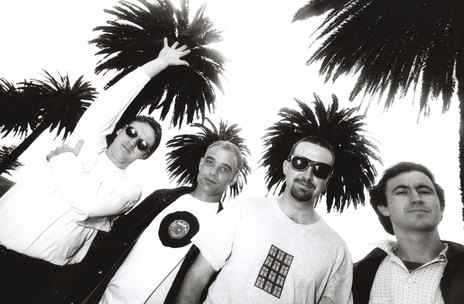
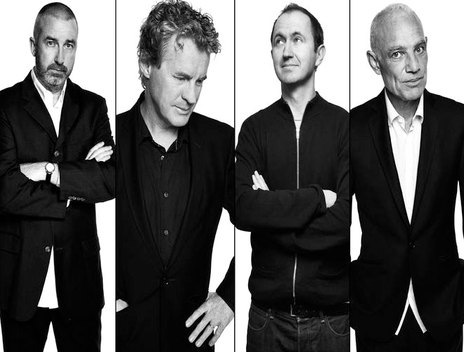
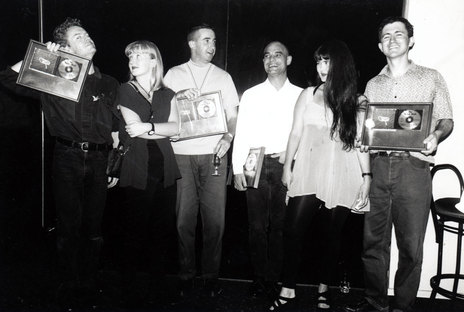
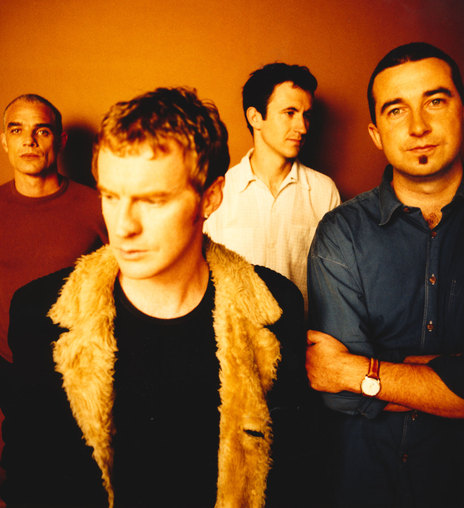
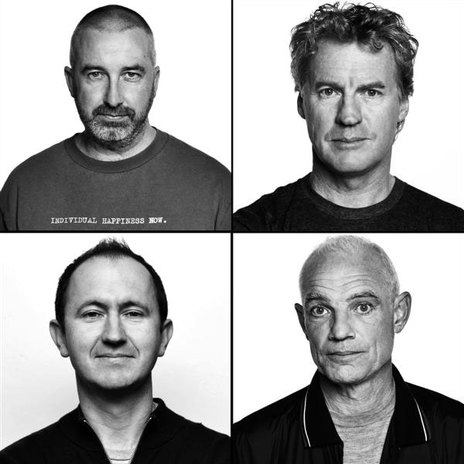
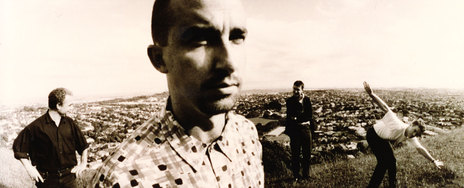
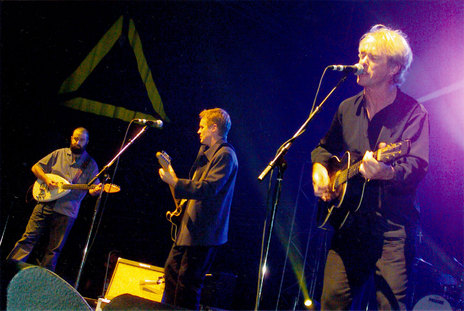
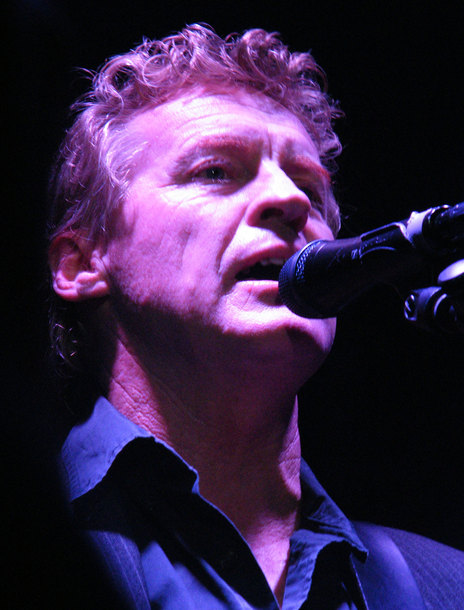
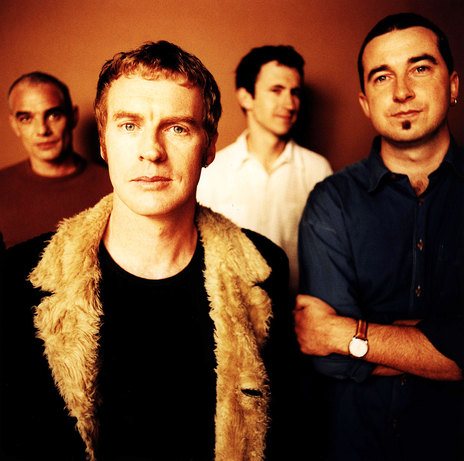
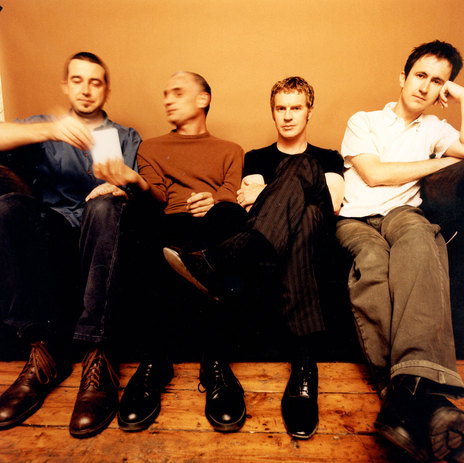
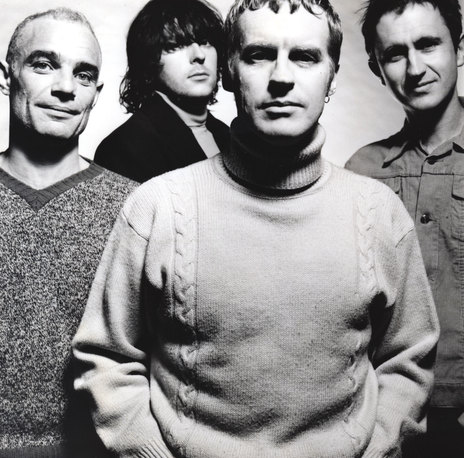
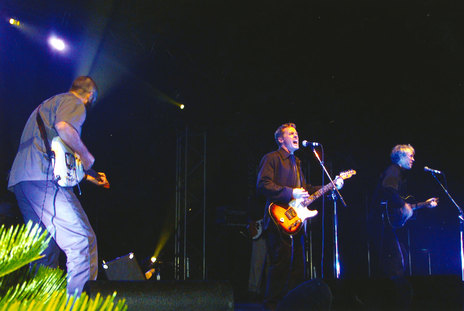
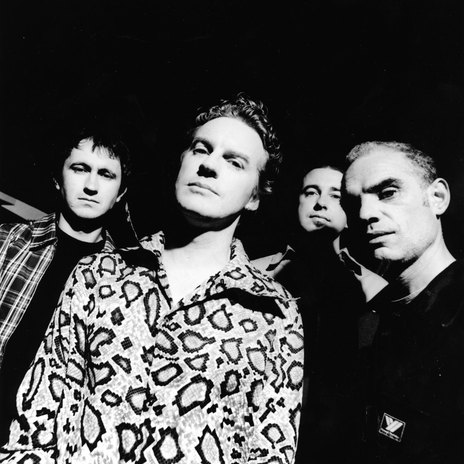
EMI
Virgin
Mutton Birds fans include noted Scottish novelists Ian Rankin and Christopher Brookmyre. Rankin even named his best-seller The Falls after a Mutton Birds song. McGlashan calls Brookmyre “a friend. He has a character raving about one of our songs in his book Country of the Blind. I’m not sure why Scottish crime writers got interested in us, but I'm thrilled!"
Don McGlashan came up with the name in homage to bands like The Byrds and the Hawks. "There was that old idea of calling your band the name of an animal," he says. It was partly inspired by Don being exposed to mutton birding culture on Stewart Island via Harry Sinclair, whose family has land there.
The strong female vocals you hear on The Mutton Birds' 'Nature' are those of Jan Hellriegel
In 2013, in tribute to the Mutton Birds’ 1992 hit, a brass plaque was placed in the pavement halfway down Dominion Road – although not outside a “halfway house”.
Don McGlashan - vocals, guitar, euphonium
Ross Burge - drums
Alan Gregg - bass, vocals
Chris Sheehan - guitar
Andrew Claridge - guitar
Tony Fisher - bass
Visit our sister site
NZ On ScreenMade with funding from
NZ On Air









